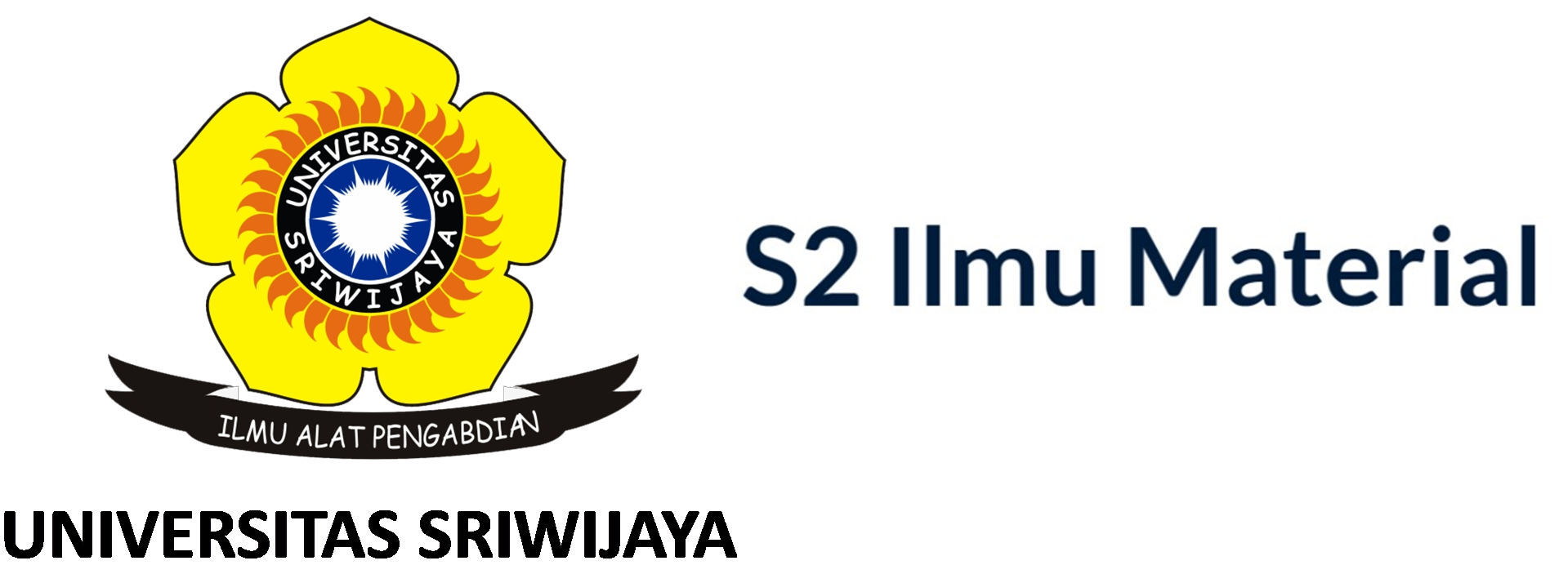The Magister program of Material Science at Sriwijaya University Graduate School prepares graduates for roles as academics, researchers, multi-sectoral industry practitioners, and consultants. Graduates of Material Science must possess the following competencies in knowledge, attitude, and skills:
ATTITUDE
- Devotion to the Almighty God and demonstrating Pancasilaism principles.
- Upholding human values in duties, grounded in religion, morals, and ethics.
- Contributing to the improvement of community life, nationhood, statehood, and the advancement of civilization based on Pancasila.
- Serving as a proud citizen who loves their homeland, embodying nationalism and responsibility to the nation and state.
- Respecting cultural diversity, views, religions, beliefs, and the original opinions or discoveries of others.
- Collaborating and showing sensitivity and concern for society and the environment.
- Being obedient and disciplined in community and state life.
- Internalizing academic values, norms, and ethics.
- Demonstrating responsible attitudes towards work in their field of expertise independently.
- Internalizing the spirit of independence, struggle, and entrepreneurship.
- Being a member of the scientific community, willing and ready to apply their knowledge for the development and research in Material Science and other scientific disciplines.
KNOWLEDGE
- Mastery of concepts, theories, methods, or philosophy of Material Science such as Crystallography, Material Thermodynamics, Material Phase Transformation, supported by Material Analysis.
- Familiarity with the latest, advanced, and forefront issues in the field of Material Science.
- Proficiency in analyzing various synthetic and natural materials both macroscopically and microscopically.
- Mastery of the implementation and application of various material classifications in industry, environment, energy, health, food, and agriculture for human welfare.
GENERAL SKILLS
- Ability to develop logical, critical, systematic, and creative thinking through scientific research, design creation, or artistic work within the field of science and technology, adhering to humanitarian values, and presenting scientific concepts and studies in the form of a thesis or equivalent, uploaded on the university website, and published in accredited scientific journals or accepted in international reputable journals.
- Ability to perform academic validation or study to solve community or relevant community problems through knowledge and skill development.
- Ability to compose ideas, thoughts, and scientific notions responsibly and ethically, and communicate them through media to the academic community and wider society.
- Ability to identify the scientific field that is the object of research and position it on a research map developed through interdisciplinary or multidisciplinary approaches.
- Ability to make decisions in the context of solving problems in the development of science and technology, taking into account human values, based on analytical or experimental study of information and data.
- Ability to manage, develop, and maintain working networks with colleagues and wider research community groups.
- Ability to enhance independent learning capacity.
- Ability to document, store, secure, and retrieve research data to ensure validity and prevent plagiarism.
SPECIFIC SKILLS
- Ability to characterize and elucidate the physical and chemical properties of various materials through a combination of crystallographic and non-crystallographic methods.
- Ability to identify and classify existing materials and possibly discover new materials, including synthesizing new materials with unique and specific properties for the benefit of humanity.
- Ability to conduct basic to advanced research in the field of Material Science that results in significant innovations for the development of Material Science.
